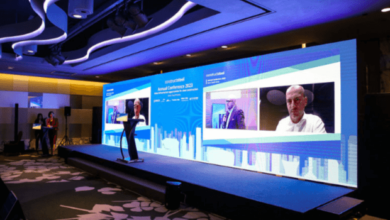Woolmark Retail License: Everything You Need to Know

Wool, a fibre with a rich history from ancient times, has remained a prized material for its exceptional warmth and durability. From the rugged hills of Scotland to the vast sheep farms of Australia, wool has been woven into the fabric of cultures worldwide. And for retailers looking to sell woollen products, the woolmark retail license offers a seal of quality and authenticity that is recognised around the globe. So, you can learn all you need to know about this prestigious certification program and how it can help your retail business stand out in a crowded marketplace.
What are the benefits of this license?
This license offers several benefits to retailers who participate in the program. These benefits include:
- Quality assurance: The license guarantees that retailers’ products meet the highest quality standards. Consumers can be assured that any product bearing the Woolmark logo is made from 100% pure new wool and has been rigorously tested to ensure its quality.
- Brand recognition: The Woolmark logo is a globally recognised symbol of quality. Retailers participating in the licensed program can leverage this recognition to differentiate their products from competitors.
- Marketing support: The Woolmark Company provides marketing support to retailers who participate in the program. It includes access to marketing materials and promotional campaigns that can help increase sales and brand awareness.
- Access to new markets: This license program is recognised in many countries worldwide. Retailers participating in the program can expand their customer base by selling their products in new markets.
How to obtain this license?
To obtain this license, retailers must meet specific requirements and undergo a certification process. The process includes the following steps:
- Application: Retailers must apply to the Woolmark Company to participate in the program. The application process involves providing information about the company and the products they wish to sell under its logo.
- Product testing: Once the application is approved, the retailer’s products undergo rigorous testing to ensure they meet the quality standards set by the company. Products are tested for durability, colour fastness, shrinkage, and other quality indicators.
- Licensing agreement: Retailers who pass the product testing phase sign a licensing agreement with the company. It sets out the terms and conditions of the program, including using the Woolmark logo and paying licensing fees.
- Annual auditing: Retailers who participate in the program are subject to annual auditing to ensure they continue to meet the quality standards the company sets.
- Renewal: The woolmark retail license is valid for three years and can be renewed upon expiry.
What are the costs associated with this license?
Participating in the licensed program involves several costs, including:
- Application fee: Retailers must pay an application fee when applying to participate in the program. The fee varies depending on the country and region.
- Testing fees: Retailers must pay for the product testing phase of the program. The cost varies depending on the number of products and the complexity of the testing required.
- Licensing fees: Retailers who sign a licensing agreement with the Woolmark Company must pay annual licensing fees. The fees are based on the volume of products sold under their logo.
- Marketing fees: Retailers participating in the program may be required to contribute to marketing campaigns and other promotional activities.
Conclusion
The woolmark retail license program is a valuable certification for woollen product retailers. The program ensures that products bearing the Woolmark logo are made from 100% pure new wool and meet strict quality standards. Retailers participating in the program can leverage this logo to differentiate their products from competitors, gain access to new markets, and receive marketing support from the Woolmark Company. However, there are costs involved in participating in the program, including application fees, testing fees, licensing fees, and marketing fees.




